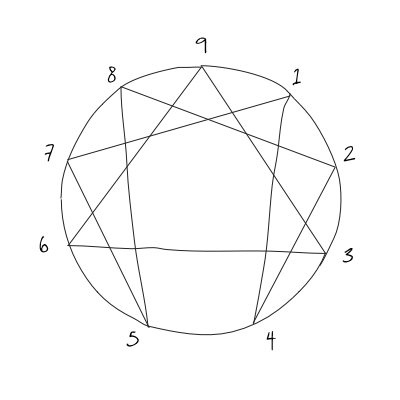In self-development work it seems to me that people often fall in love with the first assessment tool that offered them some insight. The Enneagram is that tool for me. This model of nine worldviews and ways of focusing attention was the first window that allowed me to see that how I was in the world made sense in the larger scheme of things. At the same time it held up a mirror so that for the first time I understood the concept of “blindspot” and how mine played out in my thinking and behaviour.
During a visit to Victoria British Columbia I attended an Introduction to the Enneagram workshop hosted by Kira MacDuffee and Edward Colley. Both Kira and Edward use the Enneagram as a lens in their work with clients as Clinical Counsellors so they have an intimate familiarity with the model.
While their presentation was chock full of useful and practical applications of the the model what I appreciated most was just how grounded their teaching was in the deeper meanings offered by the Enneagram. One of the things that initially appealed to me about the Enneagram was illustrated by the respectful approach taken by my first teachers. Kira and Edward made a point of setting the training in a historical context and helping us make the distinction between finding our type as an orientation – a home base and using it as yet another way to excuse or restrict ourselves. They reinforced the importance of not using the model label but rather to understand possible dynamics between essence qualities and how our personality acts to compensate for loss of connection with that essence quality.
The participants in the workshop responded to this approach willingly engaging in exercises designed to mark out how aspects of the various types are alive for each of us. One woman, an Enneagram Four expressed the impact of taking an online Enneagram assessment, ” When I got my Enneagram results it was one of the few times I’d felt seen and by a computer at that!”
The reminder that the Enneagram is a map of how we have lost our connection to our central nature, a look at our strategy to avoid pain was enough to remind me why I fell in love with it in the first place. It has helped me develop compassion for myself and others.
Thank you Kira and Edward

